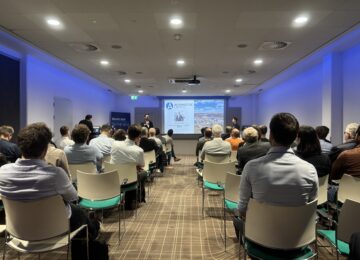Consultation on new alternative transport rights (ATR85) opened
This week, the Consumer & Market Authority (ACM) issued a draft decision published about new alternative transmission rights. These rights offer opportunities for more flexible grid use where a limitation of grid capacity is contracted at a discount on transmission tariffs. The draft decision addresses the proposal of Netbeheer Nederland for a time-based transmission right and a time-block-based transmission right. Parties can respond to the proposal through a consultation until April 24, 2024.
Time-based transportation law (ATR85) offers opportunities for energy storage
The proposal for a time-based transportation law, also known as the ATR85, was presented after intensive talks between ESNL, the grid operators and the ACM. The proposed contract gives connected parties the right to transmission during 85% of hours on an annual basis on TenneT's national high-voltage grid. The remaining 15% of the time the deployment can be limited, this will be called a day in advance at 8:30 at the latest. The restriction is offset by a discount of 100% on the tariff carrier kW contracted for connected parties with this transmission right.
The goal of the ATR85 is to use residual capacity on the high-voltage grid more efficiently. This may be of interest to operators of energy storage systems because these techniques can provide the necessary flexibility. Compared to the recently approved NFA 1.0 the new proposal offers more certainty about the degree of restriction and the compensation that will be provided in return.
Time block contract interesting for mobility
Another proposal in the draft decision is the time block-based transmission right. This entitles connected parties to transport within agreed time blocks on regional grids. This can be interesting, for example, for charging vehicles during off-peak hours in the grid. This transport right will initially become available only on regional grids.
The ACM has made some adjustments to Netbeheer Nederland's original proposal, with the aim of clarifying the code provisions and streamlining the process for connected parties. The draft decision proposes that the code amendments take effect April 1, 2025, as opposed to implementation April 1, 2026 as proposed by TenneT. Energy Storage NL is pleased that the ACM is heeding the call from the industry and providing clarity for the market with this deadline.
We urge members to respond to the ACM's consultation via this link. We ourselves will also prepare a response in consultation with our members and the various working groups. You can react until April 24 at the latest.
We welcome questions, comments or input to the consultation via info@energystoragenl.nl





